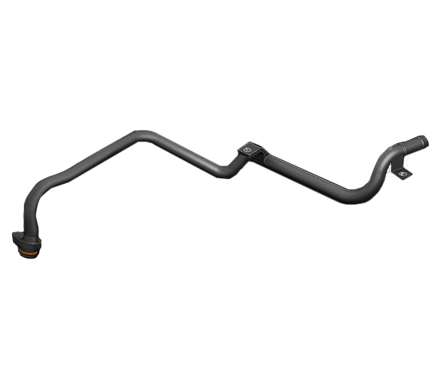
Part
Heater supply and return tubing
Introduction
In an effort to reduce weight and costs, our client—a diesel truck engine manufacturer—wanted to know if the metal tubing that carries engine coolant to and from the heater core could be made from plastic. Our gas-assist technology solution was the first application [of coring on a glass filled PPS] of its kind in North America and was nominated for an Automotive SPE Award.
Innovation
Gas-assist technology uses nitrogen gas to apply uniform pressure throughout engineered resin tubing during an injection-molding process. The resulting tubes survive burst tests to 300 psig and will not corrode like metal tubing or degrade like rubber hose.
We first engineered the technology solution, then produced tubing prototypes from various materials for testing. After verifying the performance of the design and material, we created an automated work cell for production, capable of manufacturing 330,000 tubes per year for this client.
Value
- Speed. Using plastic instead of metal tubes reduced the steps in the manufacturing process—enabling our team to produce a set of components every 60 seconds.
- Strength. By eliminating the need for traditional welding, brazing and plating processes, our process resulted in a more dimensionally accurate component with no chance of rust.
- Savings. Switching from metal-to-plastic tubes cut both the component’s cost and weight approximately 50%.
Performance
The potential for using this unique application of gas-assist technology and our metal-to-plastics conversion process extends across industries. It’s ideal if you’re looking to:
- Create an injection-molded product in a non-linear shape
- Take advantage of materials more resistant to high temperatures, chemicals or chemical reactions
- Eliminate metal content in corrosive environments
- Reduce thermal and electrical conductivity